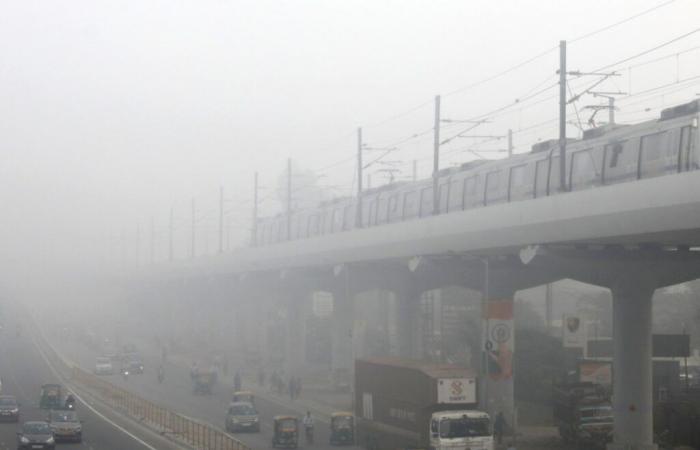Keystone-SDA
The Indian capital New Delhi decided on Thursday to close all primary schools until further notice due to air pollution in the megalopolis of more than 30 million inhabitants.
This content was published on
November 14, 2024 – 5.49pm
(Keystone-ATS) “Due to increasing pollution levels, all primary schools in New Delhi will move to remote classes, until further notice,” local chief minister Atishi announced on the social network
Schools are often closed during the worst weeks of the annual smog crisis, which also brings many other disruptions to the city.
Smog, a mixture of fog and polluting emissions caused by low-end diesel fumes, smoke from seasonal agricultural burning and winter cooling, is notably responsible for thousands of premature deaths each year.
New Delhi and its metropolitan area, where more than 30 million people live, regularly top the world rankings for air pollution in winter.
Cooler temperatures and slow winds make the situation worse by trapping deadly pollutants every winter, from mid-October until at least January. Last month, the Supreme Court, the country’s highest court, added clean air to the list of basic human rights and ordered the government to act.
On Wednesday, levels of PM2.5 pollutants (carcinogenic microparticles that enter the bloodstream through the lungs) more than 50 times above the daily maximum recommended by the World Health Organization (WHO) were recorded.
According to the WHO, air pollution can cause cardiovascular and respiratory diseases as well as lung cancer.
A study published in June established that air pollution was responsible for 11.5% of mortality in Delhi, or 12,000 deaths per year. Another study published in the medical journal Lancet blamed poor air quality for the deaths of 1.67 million Indians in 2019.
“Measures”
To combat this pollution, authorities regularly impose bans on construction activities and restrict the movement of diesel trucks coming from other regions of the country, in order to alleviate toxic clouds over the capital.
After encouraging motorists to turn off their engines at red lights, the city of New Delhi also tested a filtering tower in 2021 – quickly abandoned – and is also considering using drones to spray water on the most vulnerable areas. polluted.
“Measures”, immediately denounced environmental defense NGOs, who advocate “stopping emissions at their base”.
CO2 emissions from the combustion of fossil fuels will reach a new record this year, the Global Carbon Project announced on Wednesday, which still does not foresee a clear peak in the use of oil, gas and coal.






